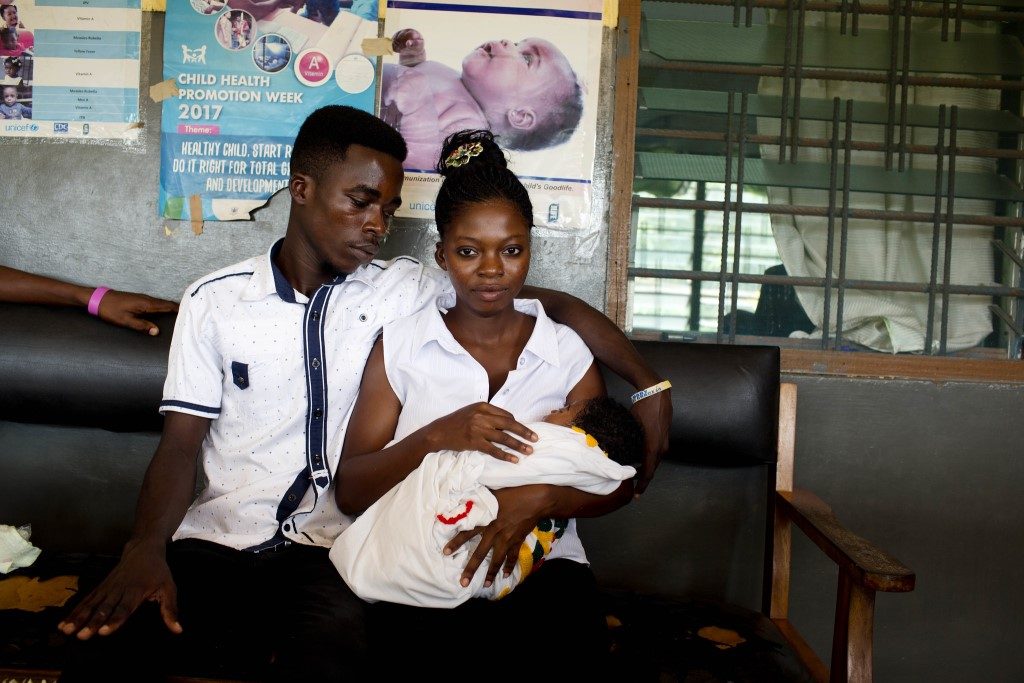
Across 40 presentations, posters, and roundtable discussions, MCSP shared what we’ve learned works to close the contraceptive access gap for the millions of women in low-resource countries who wish to delay or prevent pregnancy. […]
Read More…
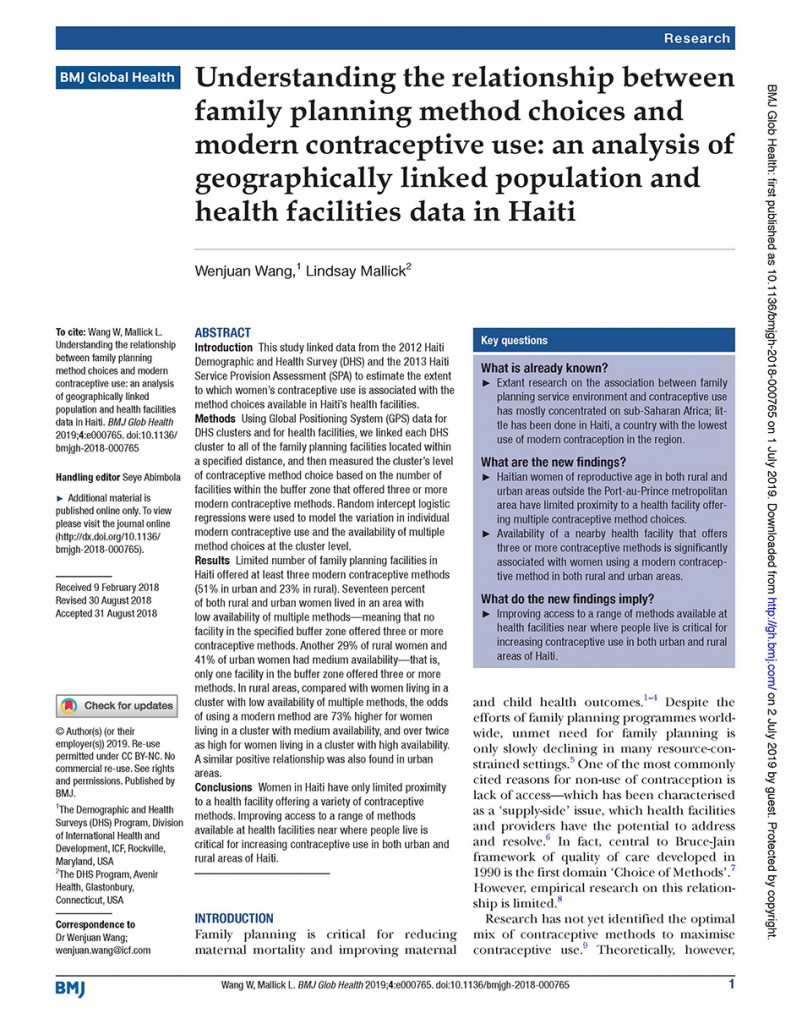
This study linked data from the 2012 Haiti Demographic and Health Survey and the 2013 Haiti Service Provision Assessment to estimate the extent to which women’s contraceptive use is associated with the method choices available in Haiti’s health facilities. […]
Read More…
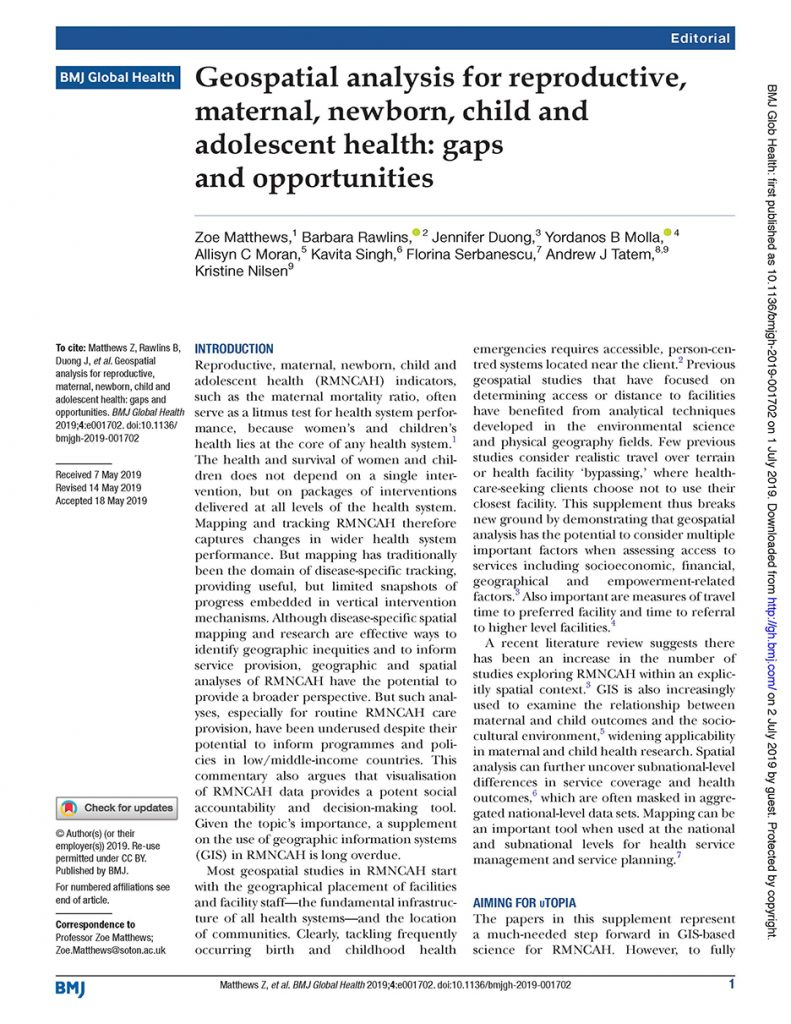
Reproductive, maternal, newborn, child and adolescent health (RMNCAH) indicators, such as the maternal mortality ratio, often serve as a litmus test for health system performance, because women’s and children’s health lies at the core of any health system. The health and survival of women and children does not depend on a single intervention, but on […]
Read More…
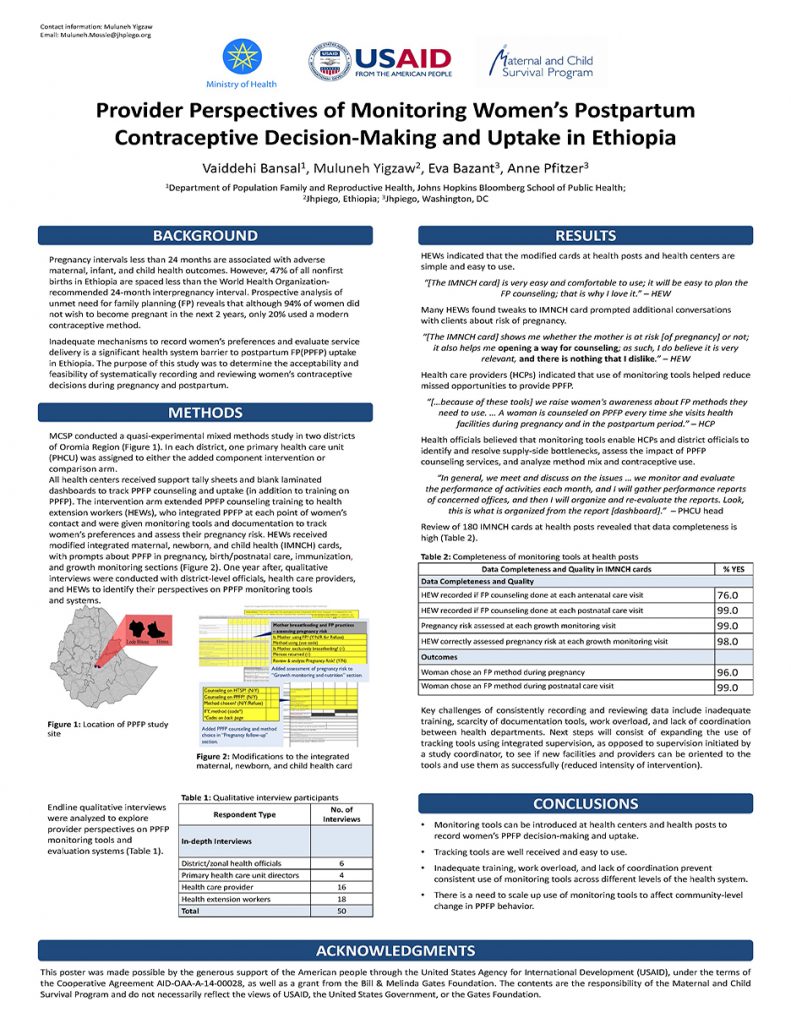
Pregnancy intervals less than 24 months are associated with adverse maternal, infant, and child health outcomes. However, 47% of all nonfirst births in Ethiopia are spaced less than the World Health Organization-recommended 24-month interpregnancy interval. Prospective analysis of unmet need for family planning (FP) reveals that although 94% of women did not wish to become […]
Read More…
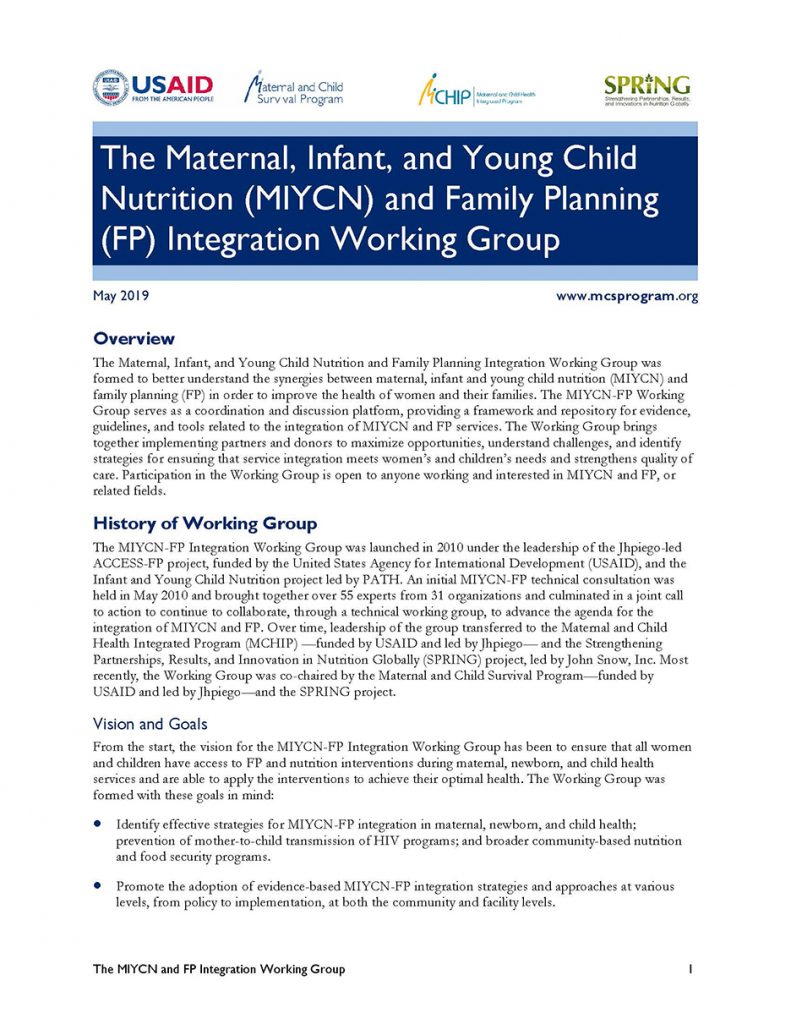
The Maternal, Infant, and Young Child Nutrition and Family Planning Integration Working Group was formed to better understand the synergies between maternal, infant and young child nutrition (MIYCN) and family planning (FP) in order to improve the health of women and their families. The MIYCN-FP Working Group serves as a coordination and discussion platform, providing […]
Read More…
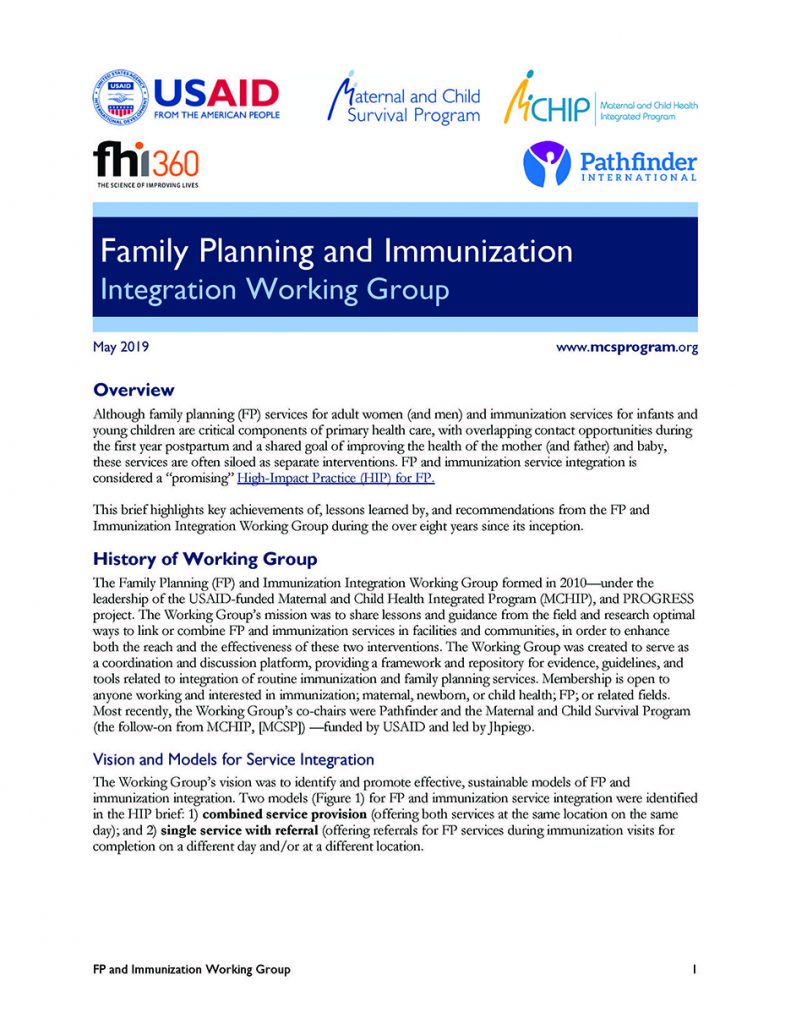
Although family planning (FP) services for adult women (and men) and immunization services for infants and young children are critical components of primary health care, with overlapping contact opportunities during the first year postpartum and a shared goal of improving the health of the mother (and father) and baby, these services are often siloed as […]
Read More…
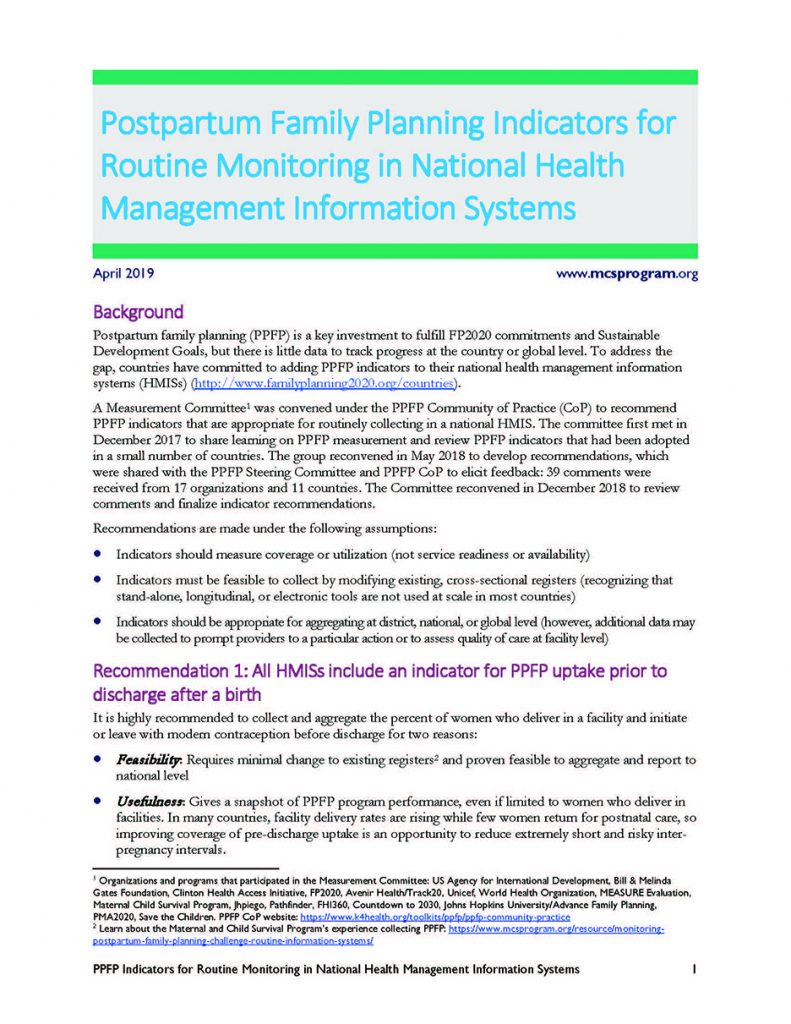
Postpartum family planning (PPFP) is a key investment to fulfill FP2020 commitments and Sustainable Development Goals, but there is little data to track progress at the country or global level. To address the gap, countries have committed to adding PPFP indicators to their national health management information systems (HMIS). A Measurement Committee was convened under […]
Read More…
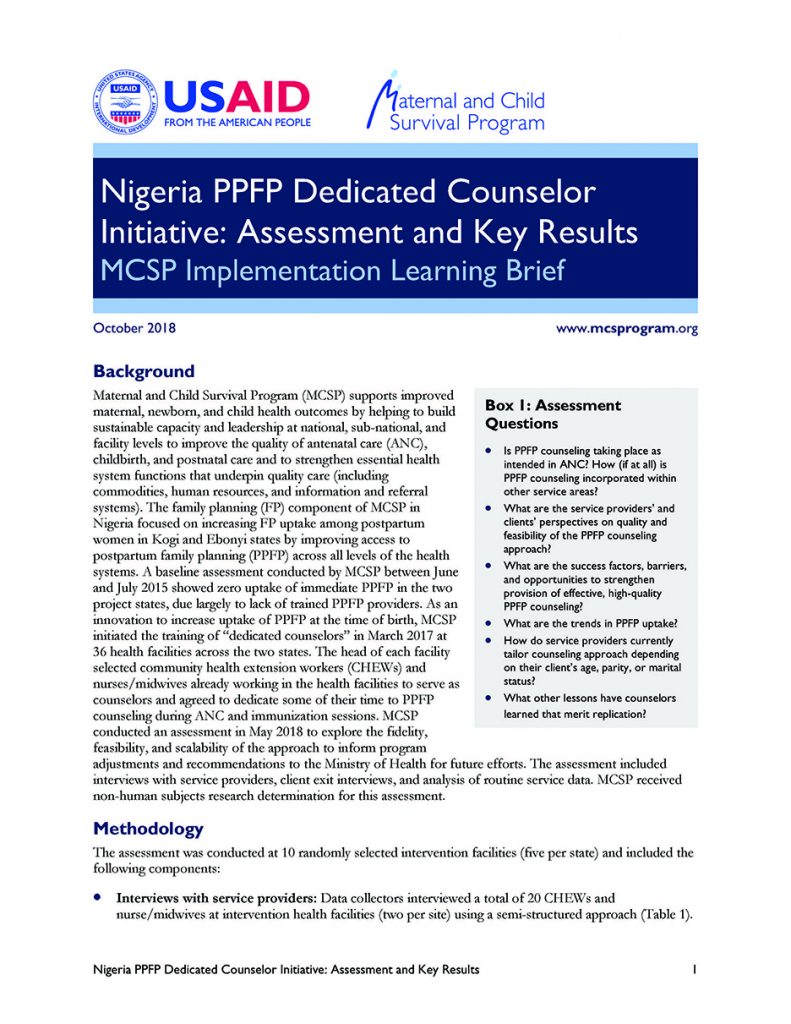
A baseline assessment conducted by MCSP between June and July 2015 showed zero uptake of immediate PPFP in the two project states, due largely to lack of trained PPFP providers. As an innovation to increase uptake of PPFP at the time of birth, MCSP initiated the training of “dedicated counselors” in March 2017 at 36 […]
Read More…
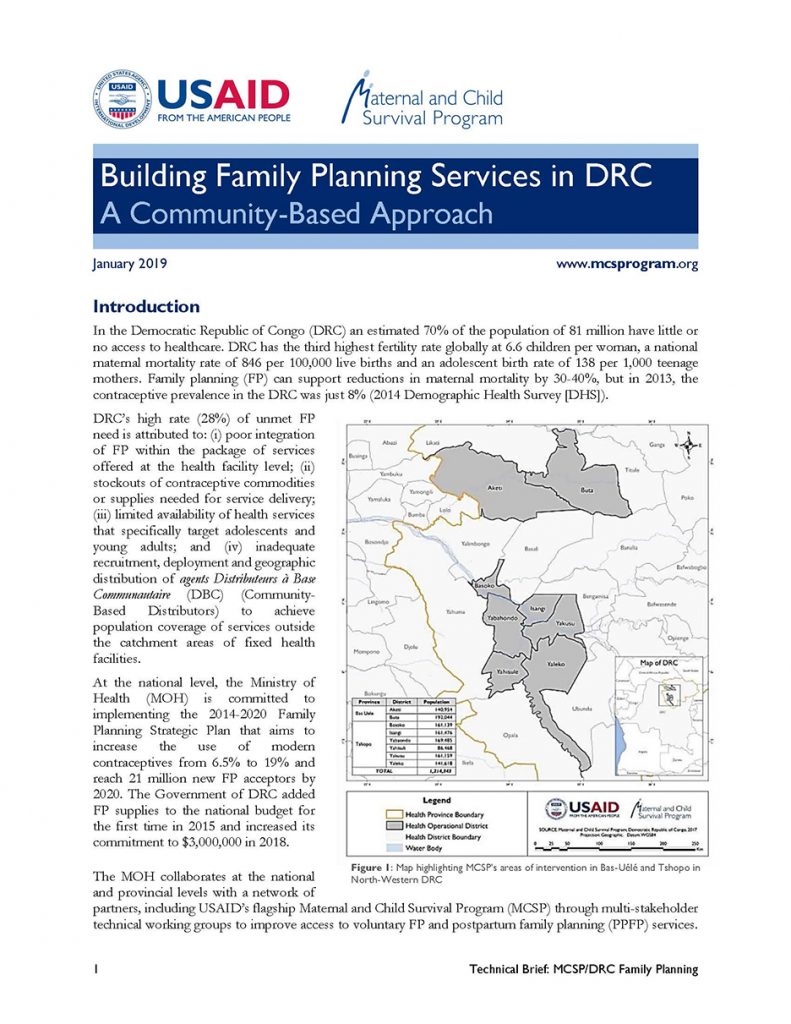
In the Democratic Republic of Congo (DRC) an estimated 70% of the population of 81 million have little or no access to healthcare. DRC has the third highest fertility rate globally at 6.6 children per woman, a national maternal mortality rate of 846 per 100,000 live births and an adolescent birth rate of 138 per […]
Read More…
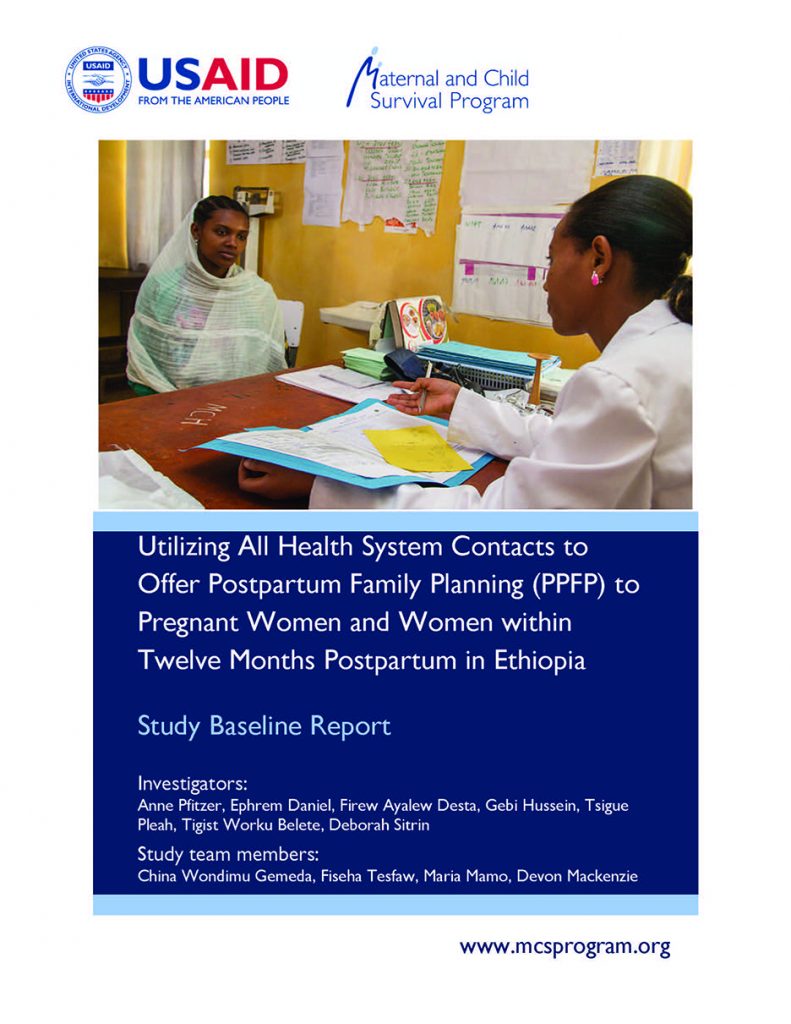
MCSP is conducting a study, in partnership with the Federal Ministry of Health and Oromia Regional Health Bureau, to test how to improve uptake of family planning among postpartum women up to 12 months after birth. The study is investigating whether postpartum family planning (PPFP) use increases if: Messages on PPFP are integrated into as […]
Read More…










